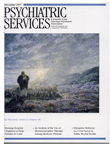The Psychopharmacologists: Interviews by Dr. David Healy
This unique text is a collection of 25 personal interviews conducted by the author, David Healy. One stated purpose of the book is to share with interested readers a personal view of the history of psychopharmacology, as told by a world-renowned group of leaders in the field. Although this book is not a psychopharmacology reference text, it offers fascinating insights into the personal struggles and political battles that have shaped the field.
The format is simple and allows easy reading. The book opens with a preface by Dr. Healy that offers a concise overview of the development of the key psychopharmacologically oriented professional organizations worldwide. In addition, the author provides thought-provoking opinions about the influence of the pharmaceutical industry in marketing psychiatric concepts. Next comes a glossary including entries such as neurotransmitters, imaging procedures, and major organizations in psychopharmacology. Following are the dramatis personae, one-paragraph overviews of each of the scientists interviewed, and a chronology of the interviews.
The body of the text consists of questions posed by Dr. Healy, in italicized type, and the responses of the psychopharmacologists. For example, in the first chapter, the interview of Pierre Pichot, the opening question is, "Could we begin with your recollections of the 1955 Paris meeting, which was effectively the first world-wide meeting on chlorpromazine?" The answer that follows is obviously the opinion of one individual, but it offers an insight and historical overview that is available only from those who were there.
The writing style is, in fact, the transcribed typed interviews; as I read through the book, I felt as if I were eavesdropping on personal conversations. Each "chapter," or interview, is a unique, stand-alone entity with no particular flaw. The interviews could be read in any order without affecting the book's flow. Although many of the interviews are inspirational, my favorite is Julius Axelrod's story of his early career hardships, which culminated in a Nobel Prize.
Dr. Healy himself is a preeminent psychopharmacologist and a respected member of the elite group he includes in his interviews. His personal relationships with his subjects results in a candor that enhances the enjoyment of the book.
I strongly recommend this book to anyone interested in medical history. A knowledge of psychopharmacology is not necessary, but useful. Given the current emphasis on this field, it is easy to forget how young it is, with most of its founding fathers still alive and productive. Besides the text's attractiveness for medical history buffs, it should be required reading for students interested in pursuing a career in research. Without preaching, The Psychopharmacologists drives home the point that politics, economics, and science are indeed strange bedfellows.
Dr. Baron is medical director of the Kirkbride Center in Philadelphia and clinical professor of psychiatry at Temple University School of Medicine.



